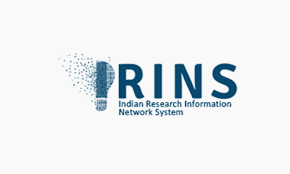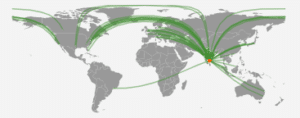Research Areas
Smart Manufacturing, Additive Manufacturing, Sustainable Manufacturing, Design for Additive Manufacturing, Experimental and Computational Biomechanics, Surgery Planning Algorithm, Advanced Manufacturing, Reverse Supply Chain, Vehicle Routing Problem, Warehouse Location Problem. Manufacturing Technology, Smart Materials and structures, Advanced Finite Element Methods, Material Modelling, Bio-mechanics, Heat and Mass Transfer, Food Processing, Electronic cooling system, Heat Exchangers, Chemical Processing, Complexity in product design & entrepreneurship, Human Factors, context aware solutions, Engineering design with polymers and polymer composites, Fatigue and fracture of advanced engineering materials, Finite element based topology optimization, Robtics and Control Systems
PhD Program
ME department offers PhD program leading to doctoral degree in above mentioned research areas. The advertisement for applications for PhD program will appear twice a year during December and May of every year.
PhD scholars are selected through ME department entrance exam, followed by an Interview.
The examination pattern and syllabus for written examination are provided below.
Syllabus for Mechanical Engineering
Written test (Duration ‐ 2 hours)
Part I – Basic Engineering Sciences ‐ 50 marks ‐ 1 hour (Compulsory for all)
Part II ‐ 50 marks – 1 hour (Any one of the following Parts)
Part II A – Engineering Design
Part II B – Materials and Manufacturing Processes
Part II C – Thermal Engineering
Part I – Basic Engineering Sciences (Common to all)
Engineering Mathematics: Fundamentals of Linear algebra, Calculus, Differential equations, Probability and Statistics, and Numerical methods. Engineering Graphics: Plane curves, projection of lines, planes and solids, section and development of solids, and isometric projection. Engineering Mechanics: Free body diagram, equilibrium of particles and rigid bodies, friction, centroid, virtual work, kinematics and dynamics of particles and of rigid bodies in plane motion.
Part II A – Engineering Design
Mechanics of materials: Theory of pure bending moment and torsion, deflection of beams, Euler theory of long columns, design of thin and thick pressure vessels, principal stress strain, combined bending and torsion, application of failure theories in design, design of mechanical components such as shafts, gears, cams and followers, design of mechanical joints and drives, application of fits and tolerances in design.
Kinematics and dynamics of machines and mechanisms: position‐velocity‐acceleration analysis, classification of robots and mechanisms, mapping and transformations in robotics, differential motion‐ Jacobian‐trajectory analysis, design of robot mechanisms for various applications.
Part II B – Materials and Manufacturing Process
Engineering Materials: Structure and properties of engineering materials, phase diagrams, heat treatment, stress‐strain diagrams for engineering materials.
Machining and Machine Tool Operations: Mechanics of machining; basic machine tools; single and multi‐point cutting tools, tool geometry and materials, tool life and wear; economics of machining; principles of non‐traditional machining processes; principles of work holding, design of jigs and fixtures.
Metrology and Inspection: Limits, fits and tolerances; linear and angular measurements; comparators; gauge design; interferometry; form and finish measurement; alignment and testing methods; tolerance analysis in manufacturing and assembly.
Part II C – Thermal Engineering
Heat‐Transfer: Modes of heat transfer; one dimensional heat conduction, resistance concept and electrical analogy, heat transfer through fins; unsteady heat conduction, lumped parameter system, Heisler’s charts; thermal boundary layer, dimensionless parameters in free and forced convective heat transfer, heat transfer correlations for flow over flat plates and through pipes, effect of turbulence; heat exchanger performance, LMTD and NTU methods; radiative heat transfer, Stefan Boltzmann law, Wien’s displacement law, black and grey surfaces, view factors, radiation network analysis.
Thermodynamics: Thermodynamic systems and processes; properties of pure substances, behavior of ideal and real gases; Zeroth and first laws of thermodynamics, calculation of work and heat in various processes; second law of thermodynamics; thermodynamic property charts and tables, availability and irreversibility; thermodynamic relations.
After Admission
Registered Full time PhD scholars on fulfilment of the Institute norms are sanctioned HTRA (Half Time Teaching Research Assistantship) as per government norms.
As part of the regulations of the Ph.D programme, scholars shall be expected to complete around 4 courses (can vary based on the recommendations of the Doctoral Committee) and clear a comprehensive viva-voice exam during the initial stages of Ph.D programme and secure publications in journals & conferences of repute as stipulated by the Ph.D regulations of the institute in the later years and submit a thesis of the research work carried out.
Forms

